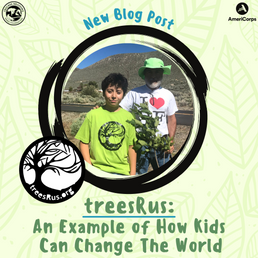Swan Lake Nature Study Area: A Protected Hidden Gem
- Jennie Johnson, Wetland Restoration Outreach Coordinator VISTA

- Jan 10, 2022
- 3 min read
Updated: Jan 13, 2022

Ten minutes north of Reno, in the Lemmon Valley area, the Swan Lake Nature Study Area is a protected wetland habitat for local wildlife like Canadian geese, Mallards, coyotes, hawks, and more. The park features acres of wetlands plus walking trails, wildlife observation areas, interpretive signs, and an outdoor classroom. Swan Lake has been impacted by flooding in recent years but has a long and rich history as one of the most unique ecological sites in the area.
For most of the year, the Swan Lake Nature Study Area is a peaceful refuge for local animals. However, each winter for several weeks, the lake is filled with the thousands of migrating waterfowl, including its namesake swans. Swan Lake has been a stopping point for migratory Tundra Swans (Cygnus columbianus) for hundreds of years. Settlers in the area report seeing the swans gather each winter from as far back as the 1800s. The Tundra Swans arrive at the lake each year around November from their breeding grounds in the far north coasts near the arctic. They stay until March when they begin the trip back north. So many birds spend the winter on the lake that their honking calls can be heard from the shore. The large white or gray swans look similar to the more commonly known mute swan (Cygnus olor) but Tundra Swans have darker bills, smooth plumage, and gather in large numbers on the lake for the winter.

While Swan Lake has been known to be a hotspot for wildlife for decades, the Nature Study Area was established more recently. As the North Valleys area began growing in the 1990s, the wetland habitat around the lake became threatened. Many groups became involved in the preservation of the area and, in 1999, the Swan Lake Nature Study Area was formed and established as an official Important Bird Area (or IBA). This gives the area national recognition as a place for wildfowl. The trails and signage were installed with donations from the community, grants, and more. A stone bird blind and a floating dock were also built to allow visitors to observe birds on the lake in their natural behaviors. In addition, the park features an outdoor classroom with a gazebo structure, rows of benches, and colorful educational displays that can be used to support field trip groups.
In 2017, the entire Lemmon Valley area was subjected to intense flooding and the Swan Lake Nature Study Area was heavily impacted. Winter snow melt, heavy rainfall, and diverted flood water and effluent led to the water levels rising rapidly in the lake. The flooding led to damage in the park and to nearby homes. Trails and structures in the park were impacted. In June 2019, the City of Reno was found liable for some of the neighborhood property damages in a dispute with residents. Despite the progress with flood mitigation in the area, the park still had some ongoing damage issues and in 2019, during an extreme wind event, the floating observation boardwalk was also destroyed. The damaged boardwalk was slated for removal in Summer 2021 and repairs for the park are planned. In spite of the damage to the park, the swans have continued to return each winter and arrived this year in late fall. The large flock is gathered on the east side of the lake and should remain until March.
To see the swans, you can visit the park from Reno by driving north on 395 and taking the exit for Lemmon Valley. From Lemmon Valley Drive, take a left onto Military Road, and a right onto Lear Blvd. The park entrance is a long dirt road to the left along a small canal. Currently, the area is impacted by construction and the entrance road is a bit hard to spot. A small parking lot and Swan Lake sign will let you know that you’ve made it to the right spot.
For updates on the park and its repairs, you can visit Washoe County's webpage on Swan Lake Nature Study Area.
For more images and information from us at the Parks Foundation, check out our Park of the Week video on Swan Lake Nature Study Area.
About the Author: Jennie Johnson

Jennie is our Wetland Restoration Outreach Coordinator VISTA and a lifelong Reno resident who graduated from the University of Nevada, Reno with a B. A. in Cultural Anthropology. After working in Gaming and Marketing for the last 10 years, Jennie is excited to have the opportunity to apply her skills and experience to public service and looks forward to supporting Northern Nevada programs and parks.








































google 优化 seo技术+jingcheng-seo.com+秒收录;
Fortune Tiger Fortune Tiger;
Fortune Tiger Fortune Tiger;
Fortune Tiger Fortune Tiger;
Fortune Tiger Slots Fortune…
站群/ 站群
gamesimes gamesimes;
03topgame 03topgame
EPS Machine EPS Cutting…
EPS Machine EPS and…
EPP Machine EPP Shape…
Fortune Tiger Fortune Tiger;
EPS Machine EPS and…
betwin betwin;
777 777;
slots slots;
Fortune Tiger Fortune Tiger;